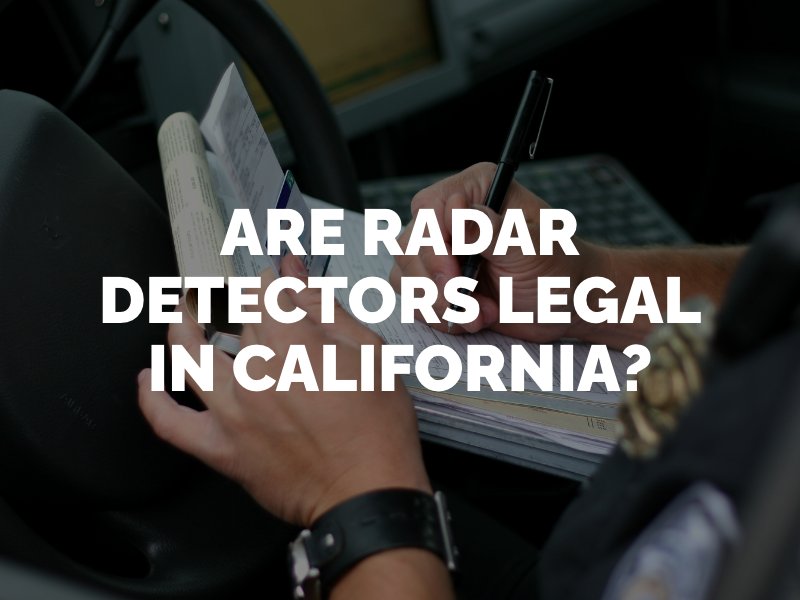Radar Detector Legality in California
Radars are used by law enforcement officers to gauge how fast a vehicle is moving for the purposes of catching speeders and issuing tickets, to ultimately prevent car accidents. Radar detectors are devices that can be installed in a driver’s motor vehicle to avoid being caught by radar speed guns. In California, no law explicitly bans radar detectors. However, according to car accident attorneys in Los Angeles, certain types of drivers are prohibited from installing them.

What Are Radar Detectors?
Radar detectors are devices that alert drivers to radar gun monitoring by law enforcement. They can be installed in a vehicle to constantly scan for radar guns and similar equipment. If a speed-monitoring radar is detected, the device will issue an audible signal to alert the driver. This will enable the driver to reduce his or her speed before being caught by the officer’s radar gun – helping to prevent speeding tickets.
Are Radar Detectors Legal in California?
Yes, radar detectors are legal for most drivers in the State of California. Radar detector use is not explicitly prohibited or regulated by state law. Installing a radar detector in a privately owned passenger vehicle is legal in California and all states, with the exception of Virginia and Washington DC. However, California law states that the device cannot be installed on the windshield in a manner that obstructs the driver’s view of the road.
Note that a radar detector is not the same as a radar jammer or scrambler. A radar jammer is a device that intentionally sends out a radio frequency signal to interfere with the operation of a radar. Radar jammers block speed-checking radars from operating correctly. Under federal law, radar jammers constitute “malicious interference,” as they can disrupt airplane signals. They are illegal in California and all 50 states.
Exceptions for Certain Drivers
Commercial motor vehicle drivers in California are not permitted to install radar detectors in their commercial vehicles. This includes truck drivers and bus drivers. Any motor vehicle in California that weighs above 10,000 pounds cannot legally use a radar detector. This law is in place to protect the safety of other road users by preventing commercial drivers from speeding. Even if the device is turned off, a commercial driver could face a ticket and fine for having a radar detector in the vehicle.
Taxi drivers are also not permitted to have radar detectors in their taxis. This rule is in place to discourage dangerous speeding habits by drivers who are responsible for transporting passengers. It also applies to rideshare drivers, including Uber and Lyft drivers, in California. Finally, no driver can use a radar detector when driving through a military base, even if he or she is lawfully allowed to have one in the vehicle. The device should be turned off near military operations.
Can a Radar Detector Be Used as Evidence of Speeding in a Car Accident Case?
If you get involved in a car accident with a driver who has a radar detector installed in the cab of his or her vehicle, this could potentially be used as evidence to establish a liability claim based on allegations of speeding. An injury lawyer in Los Angeles may be able to use the fact that the driver has a radar detector to demonstrate a speeding habit. This could speak to the other driver’s character and driving behaviors – helping to prove that he or she was most likely speeding at the time of the car crash.
For more information about the legality of radar detectors and how one of these devices might impact your car accident claim in California, contact Rose, Klein & Marias, LLP for a free case consultation.
